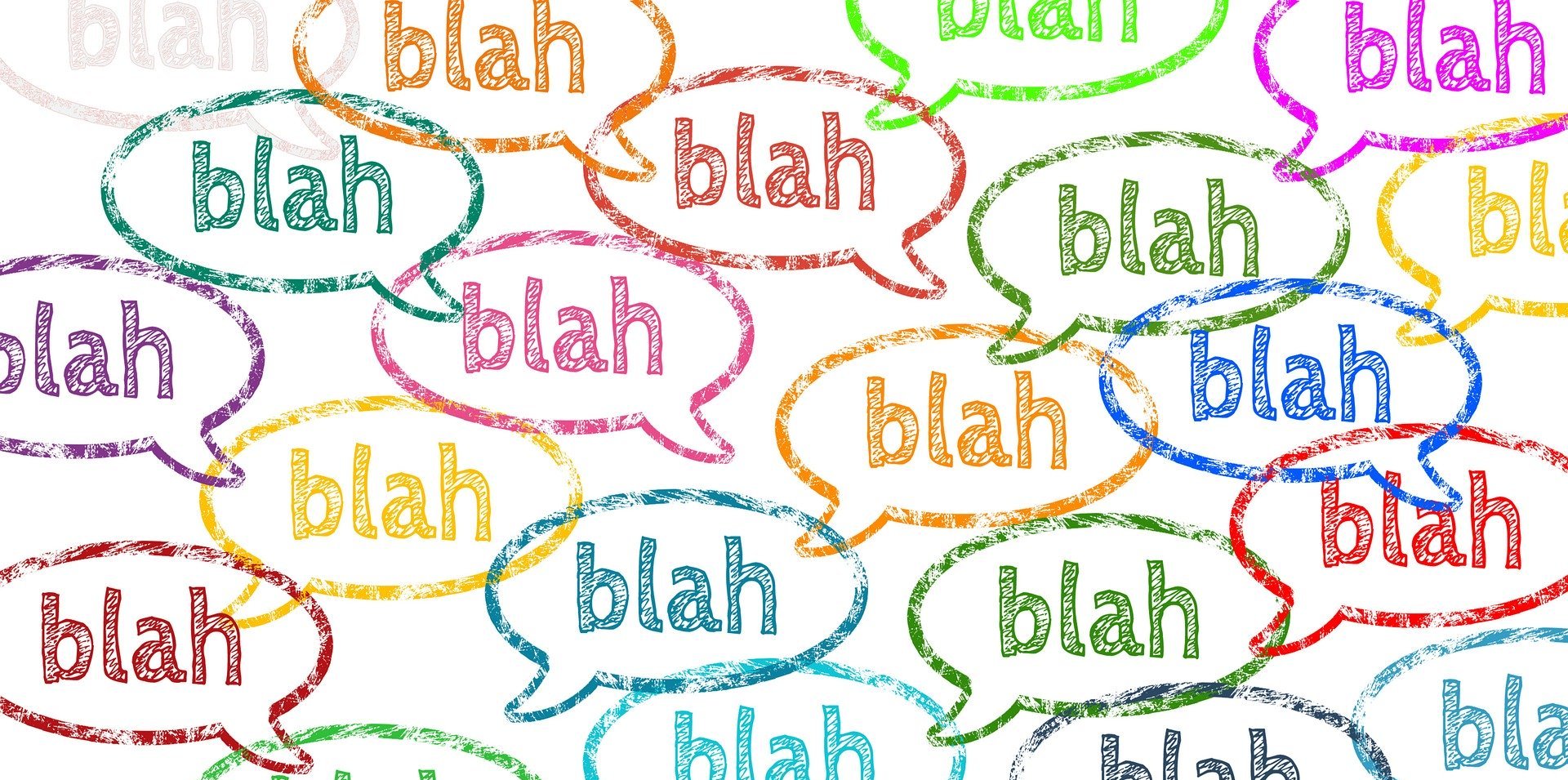You talkin' to me? An explanation of rhetoric.
Posted on 3rd January 2020 at 17:37
An exploration of rhetoric and how you can use it or use more of it in your business.
Friends, leaders and networkers what has rhetoric ever done for us?
In this blog I’ll explore the history of rhetoric, why rhetoric gets a bad press and how you can use it, or use it more in your business.
Rhetoric is simply the art of persuasion through language both written and verbal. Rhetoric is language at play. Rarely things are said flatly with the sole purpose of passing on information, they are usually said with an intention to impress, seduce, endear, inspire or justify.
Language happens because we desire things, and what unites desire and language is rhetoric. And rhetoric is all around us, not just in Westminster or The Whitehouse and it’s precisely because it’s all around us that we don’t always see it. Your parents will have used it on you from the moment you were born, you will have used it right back at them. You will use it with your friends, partners, children, business colleagues and clients whether you realise it or not.

Rhetoric originated in Ancient Greece Aristotle is said to be the king of rhetoric and he set up a school of rhetoric in Athens called the Lyceum. Unlike today, rhetoric was at the centre of their education system because the principle of persuasive speech was at the heart of Government. Aristotle and others that followed him classified rhetoric in different ways, although before I go into that I want to touch upon why rhetoric gets a bad press.
We’ve all the heard the expression, it’s just words or it’s empty rhetoric? This is often, quite rightly, directed at politicians who say something which sounds good or clever and is not backed up by facts. In other words, there is a massive gulf between their claims and promises and what they actually do. We all remember the slogan of the pro Brexit camp – Take back control but do we remember the slogan of the remainers? It is widely argued that the slogan ‘Take back control’ is the main reason why Brexit got through. Words are extremely powerful and persuasive, even if the speaker has no integrity and doesn’t back them up by their actions. No wonder rhetoric gets a bad press!
However if someone has integrity and uses powerful influential language then I believe that the use of rhetoric in this case is a good thing. So as wonderful business owners who provide wonderful goods or services how can you use wonderful words or more wonderful words to inspire your customers?
Let’s explore some rhetorical devices in more detail to answer that question.
Aristotle identified three different types of rhetorical proof, in other words to persuade someone of your argument you can use these three different things and ideally all of them.

Ethos
Is the Greek word for ethics. Ethos is your credibility, your character and in business I would say it’s your reputation. As established business owners, you will have established your ethos over the years, so say for example if you are doing a talk you may not need to say what your credentials are, such as how long you have been in business or details of your qualifications and experience because people will know you are good because of your reputation. There are other ways you can show your ethos, for example if you do key notes that is a great way to showcase your expertise, develop ethos around your network and ultimately generate more business.

Logos
Is the Greek word for logic. Logos is the facts, the logic. In a presentation this is usually the flesh of it, the main body of it if you like.
Pathos
Is the Greek word for emotion. In films we might expect pathos to convey sad emotions, but in this instance it is used to convey all emotions. You can choose to move an audience to different emotions depending upon what you want. For example, if you were telling your journey as an entrepreneur you would absolutely want to tell them of the despair, the triumphs, the highs and the lows. And pathos isn’t just relevant for talk and presentations, it also applies to your on line presence.
For example, In 2017 I had some professional photos taken which I am very pleased with. I believe that the photographer, Lidia Drzeweicka from Visuable really captured some great emotions in the pictures and as such I had more enquiries. One woman saw my website (and new photos) and said that she knew that we would get on just from my pictures! She wanted to work with me even though she was based in Loughborough and I was based in Bristol. She became my client and we met in London.
Share this post:




